Short of buying them all a puppet, the only other option was to teach them all how to make their own puppet.
If you've ever taught someone to sew, you know how challenging it can be. There are needles that hurt when they hit your finger, thread that is tiny and sometimes really hard to fit into the eye of the needle, and stitches that just don't hold together right.
Well, multiply that times 50. With one class of 20 boys and 5 girls.
We spent about two weeks making puppets; we used the last 20 minutes of class time ("If we don't finish, we can't have puppeting time" is a surprisingly effective motivator!) each day, and students worked at their own pace through the instruction I put on video for each major step.
The puppets that resulted from that process are...special. Just like all first puppets.
Honestly, the most important why behind making puppets is that it has started teaching my students that mistakes happen, and that it's an essential part of learning. That nothing will ever be perfect, and that needing it to be perfect robs you of the joy of imperfection and the profoundly important process of learning from mistakes.
Their puppets are a great reflection of their creators: there are some that are planned and designed with clear intention, and others that are more haphazard in their construction. There are unicorns, chickens, cyclopses, wizards and a whole lot of monsters.
And then there were the puppets that started as one thing and ended up as something completely different.
Remember that chicken puppet? It started like this:
Technically, that chicken puppet is a mistake (just don't tell Mrs. Clucks I called her a mistake). But it's a fabulous mistake, and one that is symbolic of the journey Liza went on to learn how to make her. For a student used to being able to be "successful" in school, that is invaluable.
Making mistakes is part of learning. And those mistakes are sometimes far more valuable than the "perfect" creations would have been.
***
The puppets are now fully created, and have been used for vocabulary tests, narrative writing assignments, and even learning about creation myths from around the world.
We will use the puppets in lots of different ways, but the one I'm most excited about is that they will have their puppet take a role in the society we are studying in history. Andrew and I still are working on the details, but we basically want them to take the role of historian, researcher, and author in creating rich (historically accurate) backstories for their puppets in early human history, Sumer and Babylonian cultures, the Indus Valley Civilisation, and the early cultures of China, Egypt, Greece, and Rome.
I am hoping that there are other creative uses for the puppets I haven't even thought of. And I'm really hoping some of you will write them in comments to share them with me on Twitter.
One thing is definitely true: puppets are magic.
Even supposed-to-be-Taylor-Swift-but-now-it's-a-chicken puppets.

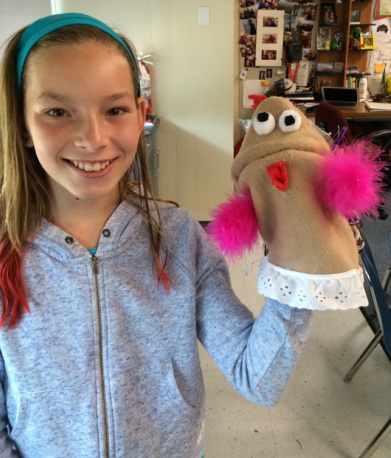
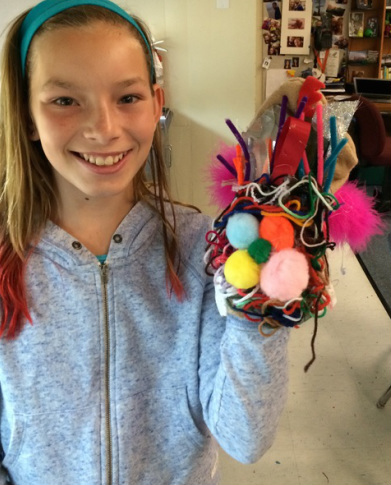
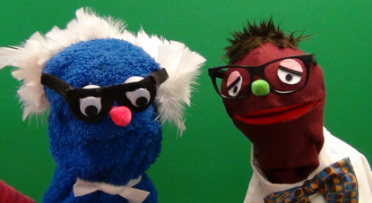
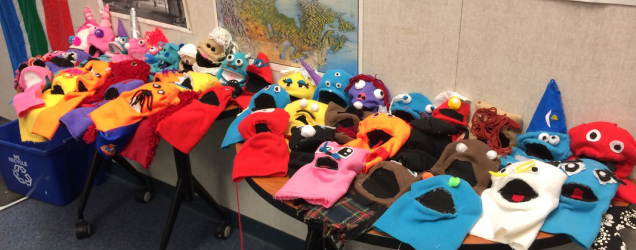
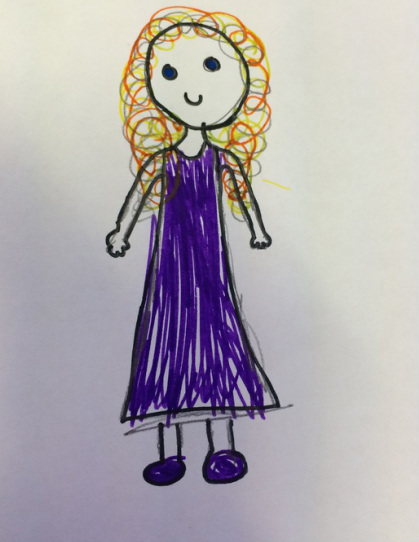

 RSS Feed
RSS Feed
